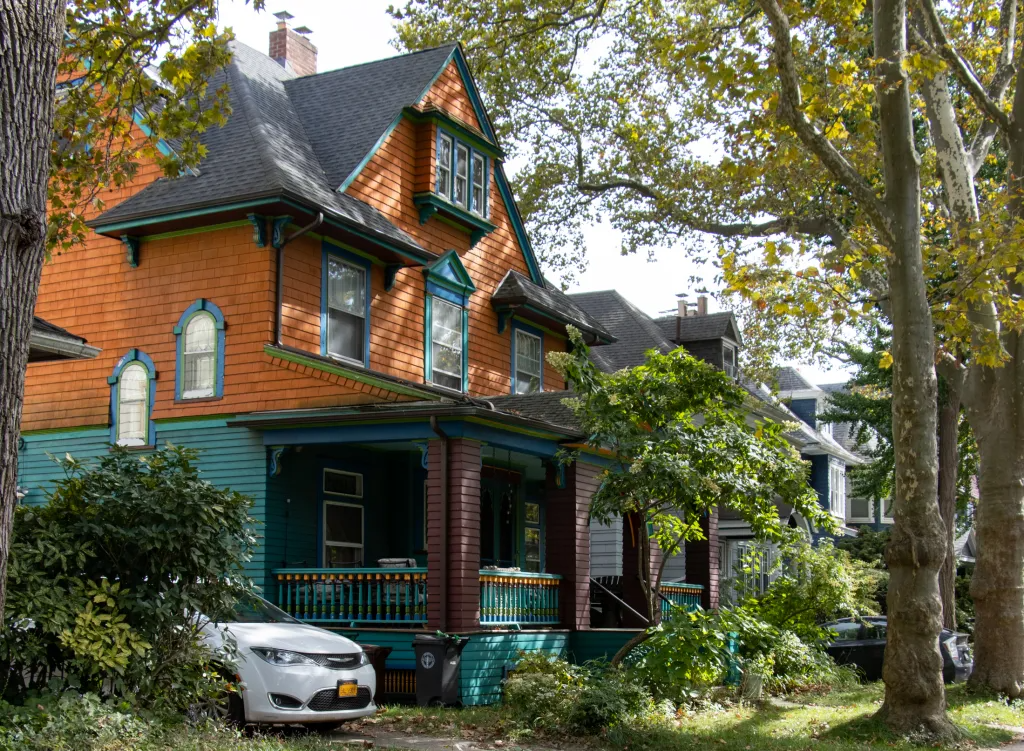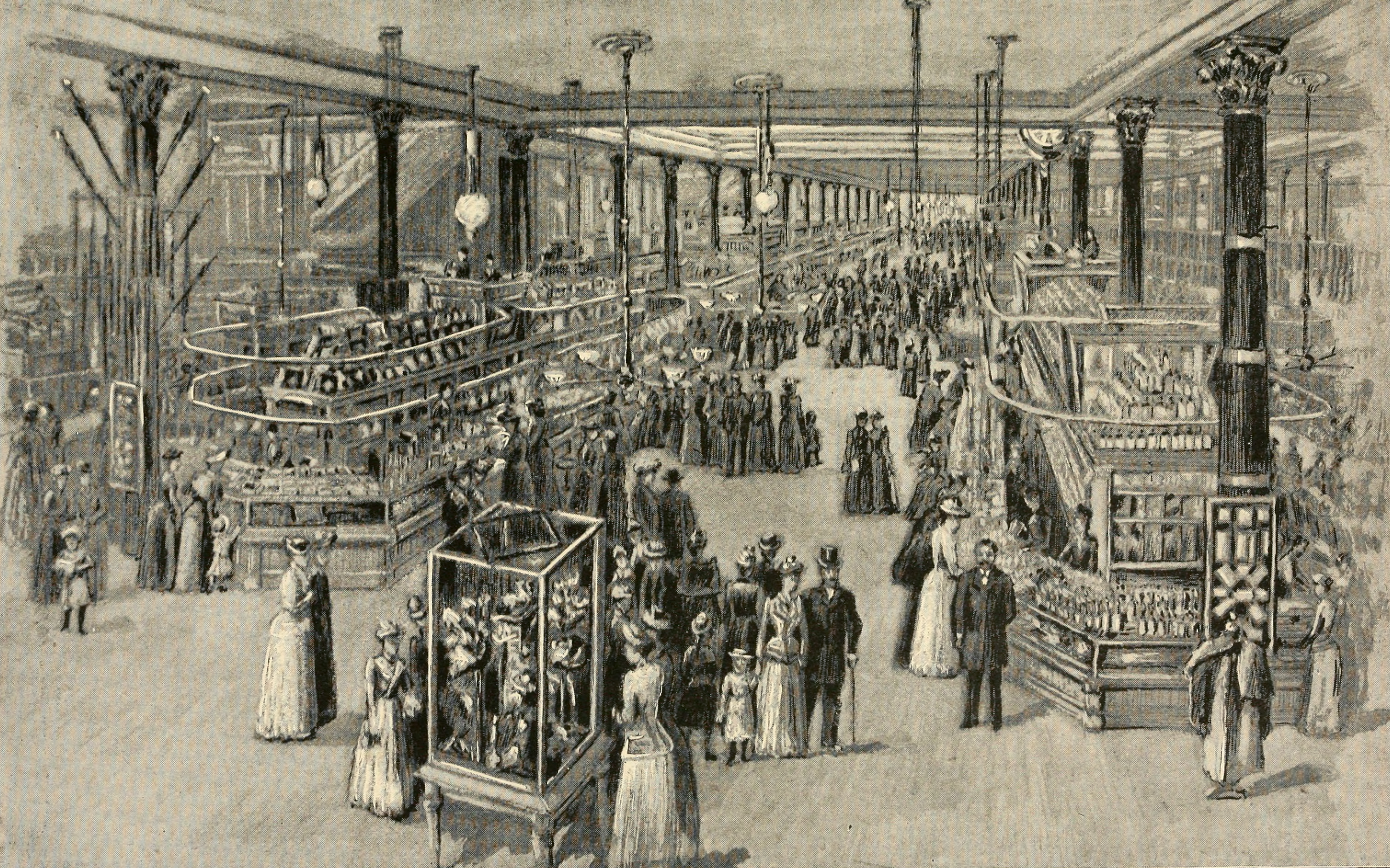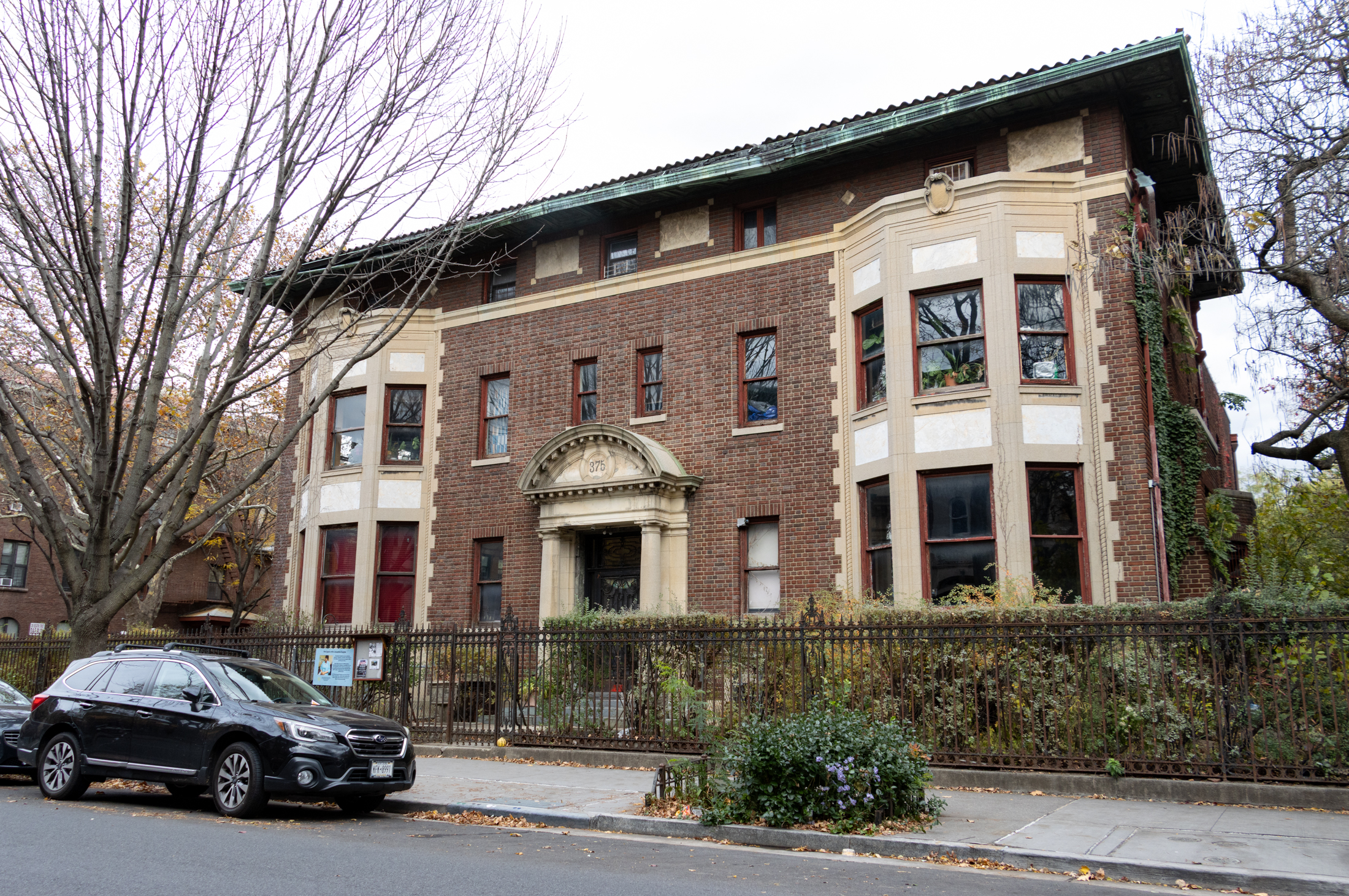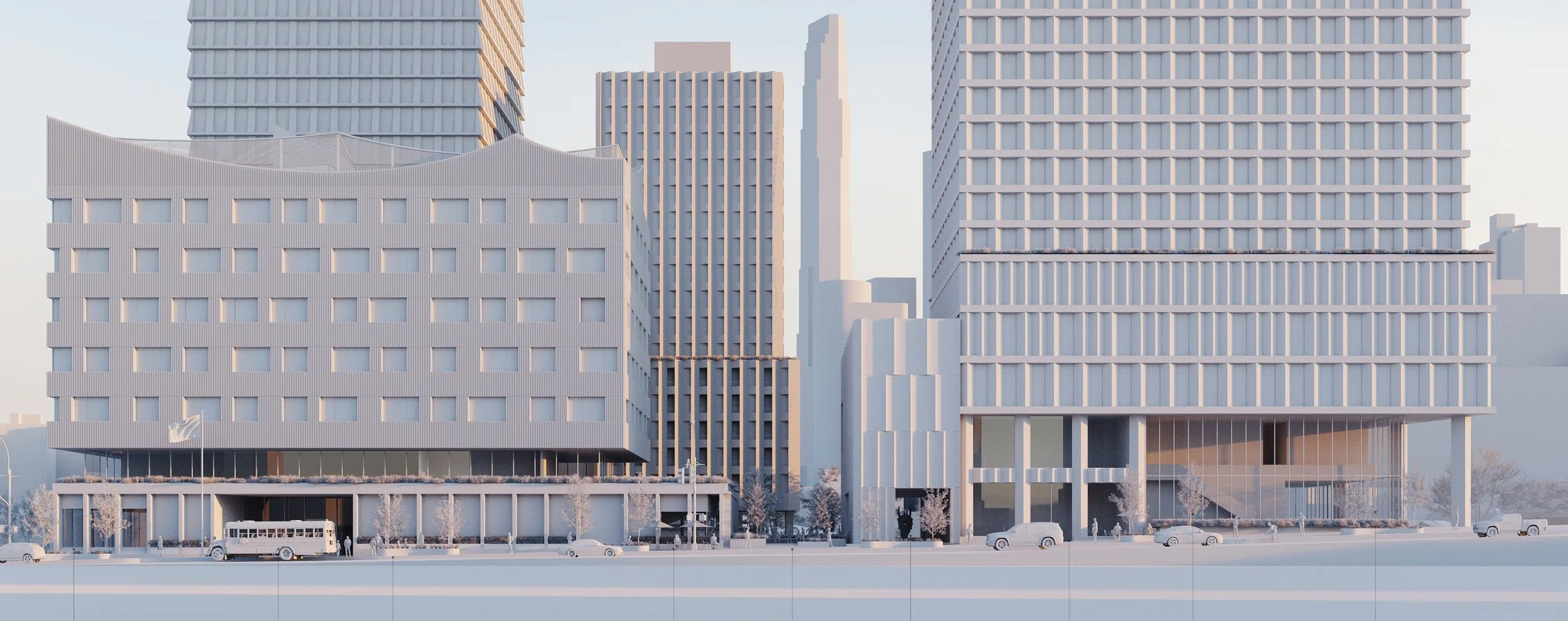A Downtown Brooklyn Brownstone Turned Rathskeller
If you are astute, you can still find the remaining brownstones on our downtown streets.

Photo by Susan De Vries
Editor’s Note: This post originally ran in 2015 and has been updated. You can read the previous post here.
In 1887, this odd numbered side of Jay Street between Willoughby and Fulton streets had a row of six brownstone row houses on it. They took up all the lots on the block except for the corner lots on Willoughby and Fulton. Like much of downtown Brooklyn at this point, Jay Street was an amalgam of buildings.
The brownstones, which were built in the 1850s and 1860s when this was a fashionable residential part of town, were slowly disappearing. They were replaced by newer, taller and larger buildings; mostly stores, theaters and banks, or they were altered and used for other purposes.

Unlike today, the Victorians were not in the habit of letting a perfectly good building go to waste.
If you are astute, you can still find the remaining brownstones on our downtown streets. They are tucked away wedged between larger buildings. Many look nothing like they used to. We walk by them, unnoticed, every day.

By the 1880s, they were mostly rooming houses. Some retained their stoops and original details, while others lost their ground and parlor floors to retail spaces. The building at 385 Jay Street was renting out rooms in 1879. It was a great location for commuting to Manhattan or working downtown.
The ground floor space was retail space. In 1892, a barber was in business here. In 1900, there was a cigar store on the ground floor. At 11:30 at night, on the evening of March 30, 1900, the police raided the cigar store’s back room and busted up an illegal craps game. They arrested 28 men. It took four wagons to haul them off to the precinct.
The next morning, none of them had been bailed out. There were probably some irate family members in Brooklyn that morning.
In 1908, this building and 48 Willoughby Street, which is perpendicular to it, and shared a party wall, were bundled together as one property. 48 Willoughby is a similar former brick row house, also three stories tall.

They opened as Engelke’s Restaurant business. 48 Willoughby became Engelke’s Restaurant, and 385 Jay Street became home to Engelke’s Alt Deutsche Bier Stube, an old fashioned German pub.
The transformation of the old brownstone to a pseudo-Tudor/Germanic stucco and half-timbered beer hall took place at that time. The initials below the roofline are definitely Germanic.
The building did not look as it does now, it was much more period looking, with more timbering, leaded windows and alt detail. The ground floor and cellar housed the pub. According to the ad, the Bier Stube was a newly renovated building, designed in the “Old Dutch style,” and there was nothing like it in Brooklyn.

Mrs. Engelke had her offices here, which she opened up to the local Suffrage movement chapter. The new Woman Suffrage Organization of the Third Senatorial District first met here on November 18, 1909.
Unfortunately, as we all know, restaurants and bars do not last long in this city. Brooklynites did not flock to the Alt Deutsche Bier Stube. The buildings were sold in 1913. At that time they belonged to the estate of V. Henry Rothschild, who had been one of the original, but silent partners of Abraham & Straus. The want ads note the restaurant and rathskeller furnishings in the building.

Over the years, many other businesses and tenants occupied the building. They included the Shoe Manufacturers Bureau of Statistics and Labor, a trade union, which had offices upstairs in 1915.
In 1920, the storefront and upper floors were taken up by the Paramount Engraving Company, owned by E. A. Bartels. He specialized in society and commercial stationery, printing and engraving.

In 1927, this building was the offices of the Thomas Real Estate Company. Their advertising was refreshingly honest. They advertised themselves as “real estate hustlers.”
Eddy Brady operated a bar here in the 1930s and 40s, and in 1972, this was home to one of the few Nature Food Centers in Brooklyn.
The façade and the fenestration have changed over the years, and today the building is an odd mix of mock-Tudor (or is that Old Dutch), modern energy efficient windows, and a blah plate glass storefront. The 1980s tax photo shows a much nicer building, with great multi-paned leaded glass windows, including on the top floor, now covered over. Underneath it all? Bricks and beams dating from the 1860s.

[Photos by Susan De Vries unless noted otherwise]
Related Stories
- A Mid-Century Surprise in Downtown Brooklyn
- Terra Cotta Twins Fly Under the Radar in Downtown Brooklyn
- See the Amazingly Preserved, Mellowed Grandeur of Gilded Age Chop House Gage & Tollner (Photos)
Email tips@brownstoner.com with further comments, questions or tips. Follow Brownstoner on Twitter and Instagram, and like us on Facebook.





What's Your Take? Leave a Comment